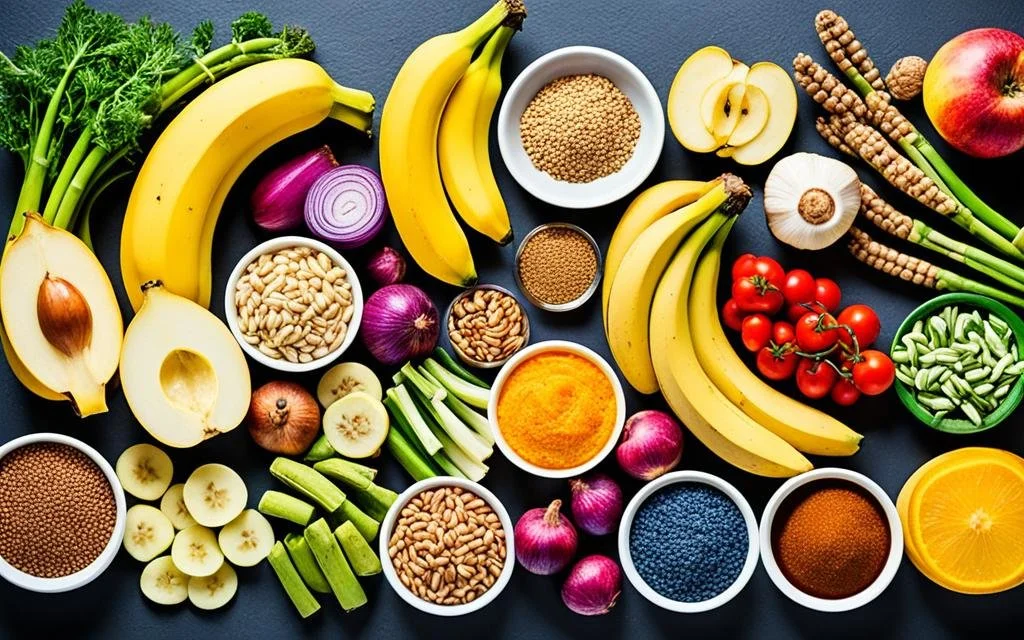Postbiotics, The key to vibrant health
When it comes to gut health, many of us are familiar with probiotics and prebiotics. Probiotics are live bacteria found in the gut and can be consumed through supplements, while prebiotics are fibre-rich foods that feed these bacteria, keeping them strong and thriving.
But have you heard of postbiotics? These fascinating compounds might just be the key to optimal health and wellness. In this blog post, I’ll delve into what postbiotics are, how they’re produced, and the roles they play in supporting your health—particularly through the power of short-chain fatty acids (SCFAs) that they provide our bodies.
What Are Postbiotics?
Postbiotics are byproducts or metabolites produced when probiotics (live beneficial bacteria) ferment prebiotics (dietary fibers) in the gut. Unlike probiotics, which are live microorganisms, postbiotics are non-living and include a variety of health-promoting compounds, such as:
Short-chain fatty acids (SCFAs): Including acetate, propionate, and butyrate.
Vitamins: Such as vitamin K and certain B vitamins.
Polysaccharides: Which enhance gut barrier integrity.
Antimicrobial peptides: To combat harmful bacteria.
Enzymes and cell wall components: That aid digestion and modulate the immune system.
Like probiotics, postbiotic supplements are becoming increasingly popular. They are easy to incorporate into supplements, and do not rely on live bacteria to deliver their health benefits. This makes them a promising alternative or complement to probiotics. However, we don’t necessarily need to supplement postbiotics- if we provide the right foods for our gut bacteria to ferment, we naturally create these amazing compounds!
Short-Chain Fatty Acids (SCFAs): The Stars of Postbiotics
SCFAs are among the most researched postbiotics, known for their diverse roles in promoting gut and overall health. There are five key SCFAs that all exhibit a wide range of health benefits: acetate, propionate, butyrate, and the lesser-known valerate and caproate.
Acetate (C2)
The most abundant SCFA, making up 60% of all SCFAs.
Functions:
Absorbed into the bloodstream to provide energy for tissues.
Plays a role in cholesterol and fat production.
Influences hunger and fullness hormones by signaling the hypothalamus.
Health Benefits:
Supports gut health by promoting a balanced microbiota.
Reduces inflammation and improves metabolic health.
Propionate (C3)
Functions:
Supports glucose production in the liver.
Regulates cholesterol synthesis, complementing acetate for balanced cholesterol levels.
Health Benefits:
Helps regulate blood sugar levels.
Reduces cholesterol, supporting heart health.
Strengthens gut mucosal integrity.
Butyrate (C4)
Well-researched for its ability to support the gut barrier, butyrate serves as a primary energy source for colonocytes (intestinal lining cells).
Functions:
Enhances gut barrier integrity by stimulating mucus production.
Modulates the immune system by promoting anti-inflammatory responses.
Health Benefits:
Prevents “leaky gut” by strengthening the intestinal barrier.
Exhibits anti-carcinogenic properties in the colon.
Supports neurological health via the gut-brain axis.
Valerate (C5) and Caproate (C6)
Functions:
Serve as alternative energy sources for gut cells.
Health Benefits:
Support colonocyte health and helps reduce gut inflammation.
Probiotic Strains That Produce Postbiotics
Not all bacteria produce postbiotics. Their production depends on the probiotics present in the gut, the fiber and protein in the diet, polyphenols, and the pH of the colon.
Lactobacillus Species
Examples: Lactobacillus rhamnosus, L. acidophilus, L. plantarum, L. casei.
Postbiotics Produced:
SCFAs like acetate, propionate, and butyrate.
Lactic acid to maintain gut pH and inhibit harmful bacteria.
Exopolysaccharides with antioxidant and immune-modulating properties.
Antimicrobial peptides like bacteriocins.
Bifidobacterium Species
Examples: Bifidobacterium longum, B. breve, B. bifidum, B. lactis.
Postbiotics Produced:
SCFAs, especially acetate.
B vitamins like folate.
Phenolic compounds with antioxidant properties.
Saccharomyces boulardii (a Probiotic Yeast)
Postbiotics Produced:
SCFAs that enhance gut mucosal healing.
Enzymes that degrade harmful toxins (e.g., C. difficile toxins).
Immune-modulating metabolites to reduce inflammation.
Bacillus Species
Examples: Bacillus subtilis, B. coagulans.
Postbiotics Produced:
SCFAs like butyrate and acetate.
Antimicrobial compounds like surfactins.
Enzymes to support digestion.
Health Benefits of Postbiotics
Postbiotics, especially SCFAs, offer numerous health benefits:
Improved Gut Health:
Maintain intestinal barrier integrity.
Prevent harmful bacteria from thriving.
Reduced Inflammation:
Modulate immune response, reducing chronic inflammation.
Enhanced Metabolic Health:
Regulate blood sugar levels and insulin sensitivity.
Improve cholesterol levels.
Neurological Support:
Influence the gut-brain axis, potentially benefiting mental health and neurodegenerative conditions.
Immune System Boost:
Balance immune function, preventing overactive or underactive responses.
How to Boost Postbiotic Production
You can naturally increase postbiotic production by supporting the probiotics in your gut with a high-fibre diet. Foods rich in probiotics and prebiotics provide the necessary fuel for probiotic bacteria to produce postbiotics.
To optimise postbiotic production, incorporate the following foods into your daily diet:
Probiotic-rich foods: Yogurt, kefir, miso, sauerkraut.
Prebiotic foods: Bananas, oats, apples, garlic, onions, leeks.
High-fibre foods: Quinoa, brown rice, whole wheat, lentils, chickpeas, fresh fruits and vegetables, nuts, and seeds.
Polyphenol-rich foods: Berries, dark chocolate, red wine (in moderation).
With their profound health benefits, postbiotics may well be the key to vibrant health and longevity. By nourishing your gut with the right foods, you can naturally harness the power of these remarkable compounds.


